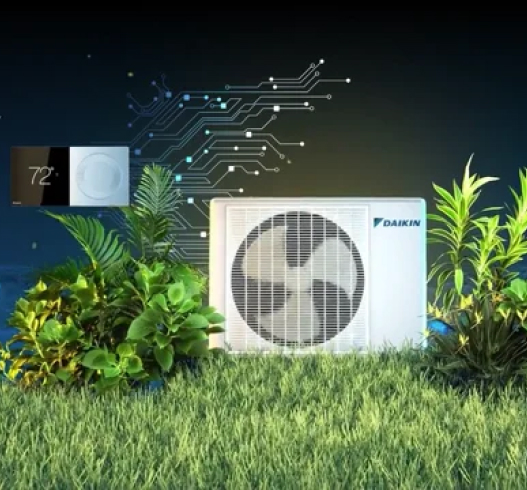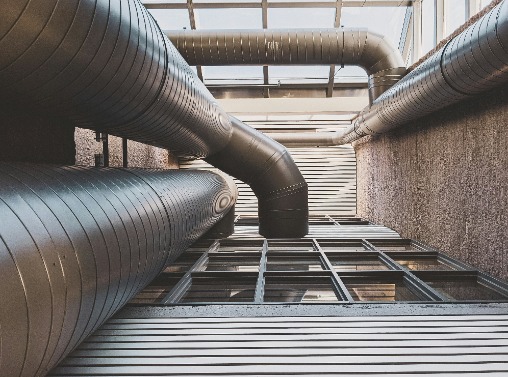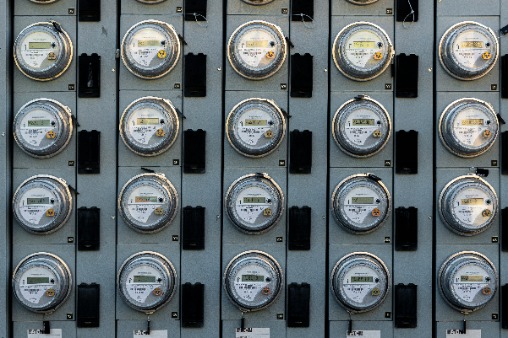Is Your Inverter AC or Heat Pump Always On? Here’s Why That’s Normal

If your AC or heat pump with adaptive inverter technology seems like it never turns off, that’s completely normal—and actually a good thing. Inverter systems are designed to run continuously at low speeds, using just enough energy to maintain your desired indoor temperature.
How Inverters Work
Inverters are designed to help maximize an air conditioning or heat pump system’s efficiency by managing its energy usage. Instead of turning off once the desired temperature is reached, inverter-equipped air conditioners continue to run at a low power level to maintain consistent comfort and conserve energy.

Picture this: A car is driving down the road and hits bumper-to-bumper traffic. Although it’s still running, it likely won’t achieve great gas mileage. Now, imagine setting that same car on cruise control, making only minor adjustments to maintain speed—that’s what inverter technology does for your air conditioner or heat pump. Instead of constantly starting and stopping when the room reaches the desired temperature, it makes small adjustments to save energy and maintain your indoor comfort.
Why Inverter ACs Run Quietly and Constantly
Non-inverter air conditioners and heat pumps tend to make a noticeable sound when turning on, and it’s easy to tell when they are off. In contrast, systems with adaptive inverter technology tend to be quiet because they avoid the noise associated with repetitive loud starts and stops. For example, the Daikin FIT, which uses adaptive inverter technology, can operate at decibels as low as 56 dB(a). According to the National Institute on Deafness and Other Communication Disorders (NIDCD), 56 dB(a) is quieter than a normal conversation level. 1
Energy Benefits of an Inverter HVAC System
Air conditioners and heat pumps that utilize adaptive inverter technology, such as the Daikin FIT, are energy efficient. This technology adjusts the compressor’s speed and output to maintain a comfortable temperature, with systems designed to use up to 30% less cooling energy compared to non-inverter compressors.* As a result, it can achieve a consistent indoor climate with low overall HVAC energy consumption.
* Daikin FIT heat pump system compared to a 12 SEER heat pump system.
If your inverter AC or heat pump seems like it’s always on, it’s doing exactly what it was designed to do—maintain indoor comfort efficiently and quietly. Rather than powering ON and OFF repeatedly, it operates at variable speeds to keep energy usage low and deliver consistent performance.
Want to experience the benefits of inverter technology? Explore efficient models like the Daikin FIT for your comfort and energy efficiency needs.
1. National Institute on Deafness and Other Communication Disorders (NIDCD). “Do you know how loud is too loud?” https://www.nidcd.nih.gov/news/2020/do-you-know-how-loud-too-loud
Additional Information
Before purchasing this appliance, read important information about its estimated annual energy consumption, yearly operating cost, or energy efficiency rating that is available from your retailer.
In this article
Connect on Social Media
 Follow on Facebook
Follow on Facebook
 Follow on YouTube
Follow on YouTube
 Follow on Instagram
Follow on Instagram
 Follow on X
Follow on X
 Follow on TikTok
Follow on TikTok
 Follow on Pinterest
Follow on Pinterest

Looking for help now?
Enter your zip code to search for Daikin Contractors in your area.
Learn More
Learning Center Content
Stay informed about home comfort technology, when to upgrade, energy efficiency, and reducing your energy bills.






























